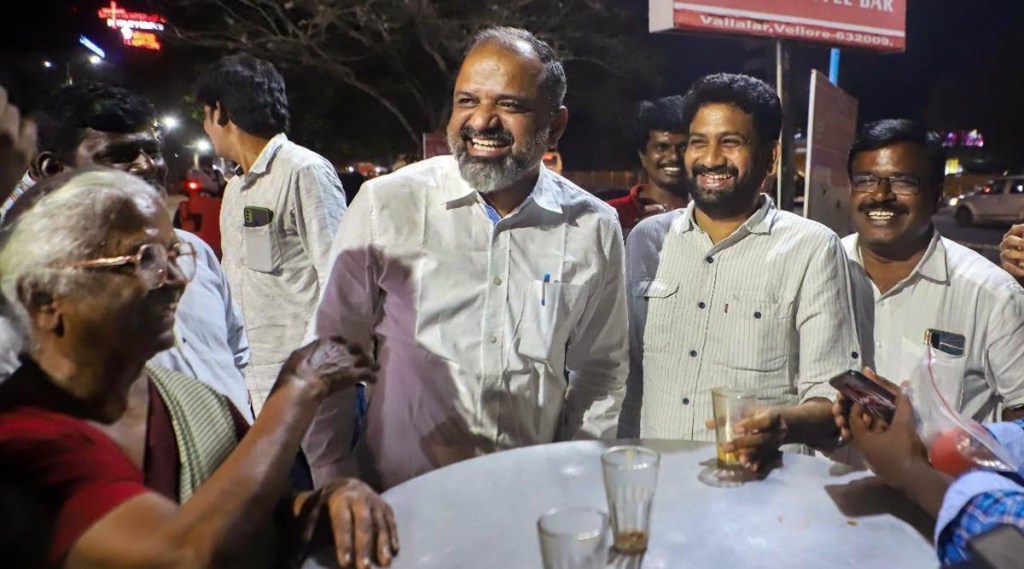The Supreme Court on Wednesday ordered release of A G Perarivalan, who has served over 30 years of life term in the Rajiv Gandhi assassination case. A bench headed by Justice L Nageswara Rao invoked its extraordinary power under Article 142 to grant relief to Perarivalan.
Perarivalan was 19 years old at the time of Gandhi’s killing in 1991. He was accused of buying the two 9-volt batteries used in the bomb to assassinate the former prime minister. He was sentenced to death by a TADA court in 1998. The Supreme Court upheld the sentence the next year but commuted it to life imprisonment in 2014. The top court had granted him bail in March this year.
Here is a timeline of events in the Rajiv Gandhi assassination case:
May 21, 1991: Former prime minister Rajiv Gandhi is assassinated in Sriperumbudur in Tamil Nadu by a suicide bomber (Dhanu/Thenmozhi Rajarathinam) belonging to the Liberation Tigers of Tamil Eelam (LTTE). The woman assassin, Dhanu, triggers a belt bomb and kills Gandhi and 16 others.
May 22, 1991: CB-CID team constituted to investigated the case.
May 24, 1991: Probe handed over to a Special Investigation Team (SIT) of CBI on state government’s request.
June 11, 1991: 19-year-old A G Perarivalan arrested by CBI and booked under TADA along with other accused in the case.
May 20, 1992: SIT chargesheets 41 accused including 12 dead, three absconding, before a special TADA trial court in Chennai.
Jan 12, 1998: After a prolonged trial, the TADA court sentences 26 accused to death including Nalini and Perarivalan.
May 11, 1999: Supreme Court upholds death sentence of four including Murugan, Santhan, Perarivalan and Nalini, sentences three others to life sentences and frees 19 other death convicts.
April 2020: Nalini’s death penalty is commuted to life by the then Tamil Nadu governor on the basis of a recommendation of the state cabinet, and a public appeal made by Sonia Gandhi.
2001: Three death convicts, including Santhan, Murugan and Perarivalan, submit their mercy pleas to the President of India.
2006: Perarivalan’s autobiography, An Appeal from the Death Row, claimed how he was implicated in the conspiracy by taking a confession under duress that he bought a battery to make the bomb.
Aug 11, 2011: Pratibha Patil, the then President, rejects their mercy petitions after 11 years.
Aug 2011: Madras HC orders stay on execution of three death convicts ahead of their scheduled hanging on September 9, 2011. A resolution is passed by the then chief minister J Jayalalithaa, seeking commutation of death sentence.
Feb 24, 2013: Raising the issue of ‘double jeopardy,’ Justice K T Thomas, who headed the SC bench in 1999, said hanging them after 23 years would be unconstitutional.
Nov 2013: Former CBI SP V Thiagarajan, who had taken the confession of Perarivalan in TADA custody, reveals that he altered it to qualify as a confession statement.
Jan 21, 2014: SC commutes death penalty of three Rajiv Gandhi case convicts, along with 12 others including aides of forest brigand Veerappan, into life imprisonment.
2015: Perarivalan submits a mercy petition to the Tamil Nadu governor seeking release under Article 161 of the Constitution. Later, he moves Supreme Court after getting no reply from the governor.
Aug 2017: Tamil Nadu government grants parole to Perarivalan, the first after his arrest in 1991.
Sep 9, 2018: Tamil Nadu Cabinet headed by the then chief minister Edappadi K Palaniswami recommends the release of all seven convicts.
Jan 2021: As the governor continues to sit on the cabinet recommendation, SC orders to take a decision, and warns that the court will be forced to release them citing the inordinate delay.
May 2021: Perarivalan is out on parole. The new DMK government kept extending the parole.
March 9, 2022: The Supreme Court grants bail to Perarivalan.
May 11, 2022: The Supreme Court concludes the hearing in the case.
May 18, 2022: Supreme Court orders release of Perarivalan from jail.

